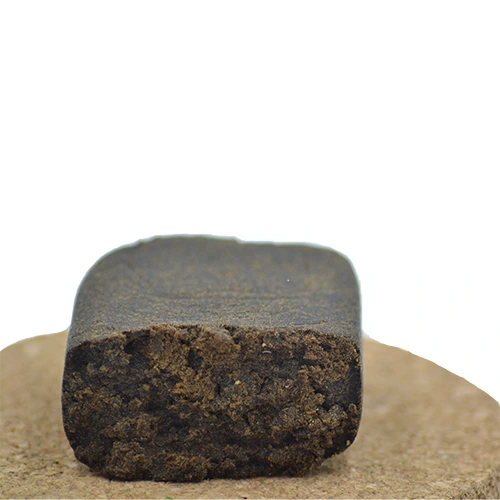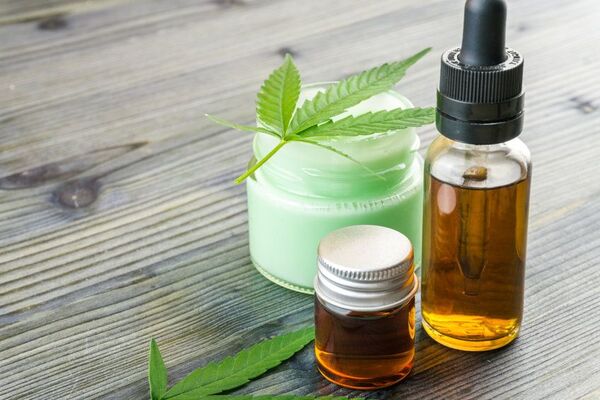Le CBDCannabidiol is a natural compound extracted from the cannabis plant. It is increasingly used for its potential health benefits, particularly in relieving pain, anxiety and inflammation.
Table of contents
Introduction
What is CBD?
CBD, short for cannabidiolis a non-psychoactive compound found in the cannabis plant (Cannabis sativa). In recent years, the CBD has become a popular product in the health and wellness industry. Two of the most common forms of CBD are CBD resins and CBD oil. Although both contain CBD, they differ in the way they are produced, their composition and their uses. This article compares CBD resin and CBD oil from various angles to provide a clear overview of the two products.
CBD Resin: What is it?
CBD resin is a concentrated form of CBD that is usually obtained by solvent extraction. It is often purer and more potent than CBD oil, which means you may need less product to get the same effects.
CBD Oil: What is it?
CBD oil is one of the most common forms of CBD on the market. It is generally obtained by extraction CO2 and is diluted in a carrier oil such as coconut or hemp oil. CBD oil is popular for its ease of application and versatility.

CBD Resin vs CBD Oil: Comparison
Origin and Production method
CBD resin
CBD resin is extracted directly from the cannabis plant using mechanical or chemical methods. This process generally involves the use of solvents such as ethanol or supercritical CO2 to extract the compounds from the plant. After extraction, the compounds are concentrated to create a thick resin with a high CBD content. CBD resin can retain a range of cannabinoids, from terpenes and other compounds from the cannabis plant, creating a chemically rich product.
CBD oil
CBD oil is generally produced by extracting the CBD from the cannabis or hemp plant and then mixing it with a carrier oil such as coconut oil, hemp seed oil or olive oil. The process ofextraction can use methods similar to the extraction of CBD resinThe final product is a liquid, not a thick resin. CBD oil often contains a high CBD content and may contain certain compounds such as terpenes, but is generally not as chemically rich as CBD resin.
Chemical composition
CBD resin
CBD resin generally contains a range of different cannabinoids in addition to CBD, including THC (tetrahydrocannabinol), CBG (cannabigerol) and CBN (cannabinol). It may also contain large quantities of terpenes and flavonoids, as these compounds may contribute to theentourage effect - a phenomenon in which different cannabis compounds act together to enhance the overall effectiveness of CBD. This diversity makes CBD resin a powerful and chemically rich product.
CBD oil
CBD oil, on the other hand, focuses primarily on providing CBD. While some CBD oils may contain other cannabinoids and terpenes, they are generally not as rich as CBD resin. This makes CBD oil a suitable choice for those who want to focus on using CBD without the intervention of other compounds.
Uses and effectiveness
CBD resin
Due to its richness in compounds, CBD resin is often considered to be more effective in treating various health problems, including pain, inflammation, anxiety and the symptoms of certain neurological diseases. The entourage effect can enhance the effects of CBD, making the CBD resin an attractive choice for those seeking overall efficacy. What's more, CBD resin can be used in a variety of ways, including inhalation, vaping or use in food.
CBD oil
CBD oil is often used for similar purposes to CBD resin, but with a concentration on the CBD supply without many other compounds. This makes CBD oil an ideal choice for those who are sensitive to THC or other cannabinoids. CBD oil is usually used in drop or capsule form, and it's easy to adjust the dose to suit individual needs.
Safety and side effects
CBD resin
CBD resin, because of its content of various compounds found in the cannabis plant, can cause certain symptoms. side effectsespecially if it contains THC. THC is the psychoactive compound in cannabis and, although most CBD resin are designed to contain low levels of THC, they can still cause mild psychological effects such as anxiety or dizziness. What's more, CBD resin can interact with certain medicines, so it's important to consult a doctor before use.
CBD oil
CBD oil, particularly products extracted from hemp, generally contains very low levels of THC or no THC at all, reducing the risk of THC-related side effects. However, CBD can still cause certain side effects such as fatigue, dry mouth and changes in taste. What's more, CBD can interact with certain medicines, so users should be cautious and consult a doctor.
Availability and legislation
CBD resin
CBD resin is often harder to find than CBD oil, partly due to complex production processes and higher costs. In addition, CBD resin can be subject to stricter legal restrictions in many places due to the possibility that it contains THC. This means users should check local regulations before buying or using CBD resin.
CBD oil
CBD oil, especially from hemp, is generally easier to find and legal in many places. This makes CBD oil a popular and convenient choice for many people. CBD oil products are often tested and clearly labelled regarding their ingredients and concentration, making it easy for users to choose and use.
What is the best option between CBD resin and CBD oil?
Choosing between CBD resin and CBD oil depends on many personal factors and specific circumstances. Here's a detailed analysis to help you choose the product that best suits your needs.
CBD resin: When to choose?
Advantages of CBD resin
Entourage effect: CBD resin contains more cannabinoids and terpenes, creating an entourage effect - a phenomenon where different cannabis compounds interact to enhance their effects. This can increase the therapeutic effectiveness of CBD, particularly in reducing pain, inflammation and supporting mental health issues.
High concentration of cannabinoids: CBD resin can contain several different cannabinoids such as THC, CBG and CBN, offering a range of health benefits.
Various methods of use: CBD resin can be used in a variety of ways, including inhalation, vaping or incorporation into food. This allows users to enjoy the benefits of CBD in a flexible way.
Inconveniences of CBD resin
May contain THC: CBD resin may contain a small amount of THC, resulting in mild psychological effects, which may not be suitable for those who want to avoid THC.
Difficult to control the dose: Due to the presence of several compounds, it can be more difficult to control the exact dose of CBD in the CBD resin compared to CBD oil.
Legislation and availability: CBD resin can be subject to legal restrictions in many places and is often harder to find than CBD oil. Users should check local regulations before use.
When should you choose CBD resin?
You want a complete product: If you're looking for a product containing a variety of compounds for overall potent effectiveness, CBD resin is an ideal choice.
You have complex health problems: The CBD resin can be beneficial for people suffering from complex medical conditions such as chronic pain or anxiety disorders, where the entourage effect can improve therapeutic effectiveness.
You want to try different methods of useCBD resin can be used in a variety of ways, giving you the flexibility to choose the method that suits your lifestyle and preferences.

CBD oil: When to choose?
Benefits of CBD oil
CBD concentration: CBD oil generally contains a high level of CBD with little or no THC, which is suitable for those who want to avoid other compounds and concentrate on the effects of CBD.
Easy dose control: CBD oil is often packaged in drops or capsules, making it easy to precisely control the dose.
Legal and easy to find: CBD oil is generally easier to find and legal in many places, especially products extracted from the hemp.
Non-addictive: With very low or non-existent THC levels, CBD oil is non-addictive, reducing the risk of THC-related side effects.
Disadvantages of CBD oil
May lack the entourage effect: CBD oil contains less cannabinoids and terpenes that CBD resinThis may reduce the entourage effect and potentially reduce effectiveness for some users.
Fewer active compounds: CBD oil may contain fewer active compounds than CBD resin, which could limit its therapeutic effects for certain conditions.
Limited use: CBD oil is mainly used orally, which may not be suitable for those who prefer other methods of administration.
When should you choose CBD oil?
You prefer a simple, specific product: If you want to use a product containing mainly CBD and avoiding other compounds, CBD oil is the ideal choice.
You need precise dose control: If you prefer to precisely control your CBD dose, CBD oil offers this flexibility with droppers or capsules.
You live in an area with strict legal restrictions: If THC-containing products are illegal in your area, CBD oil from hemp is often legal and readily available.
You're looking for a product that's easy to find: CBD oil is generally more readily available and affordable than CBD resin, making it a practical choice for many users.
Conclusion
CBD resin and CBD oil are both popular and beneficial products containing cannabidiol, but they differ in their composition, method of production and their uses. CBD resin offers a chemical richness and an efficiency This makes it ideal for those looking for a complete and powerful solution. CBD oil, on the other hand, offers a simpler and more specific option, with easy dose control and wider legal availability, making it perfect for those who prefer a more complete and potent solution. concentrated product in CBD and THC-free. Ultimately, the choice between CBD resin and CBD oil depends on personal preferences and specific health and well-being needs.

